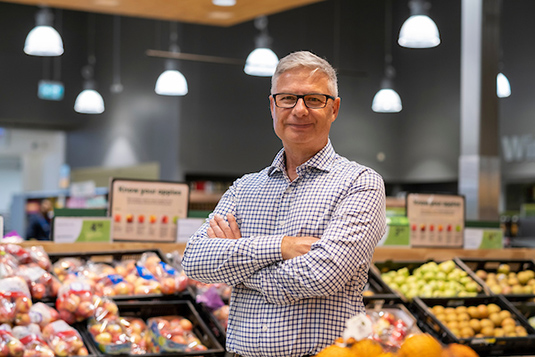Funding application for 2024 – 2025 are now open Apply Now
Member Portal
Not a member? Join us here
The country’s largest packaging industry group has welcomed Government’s move to phase-out difficult-to-recycle and some single-use plastics.
29 June 2021

The Packaging Forum CEO Rob Langford says the Forum, and its Soft Plastic Recycling Scheme (SPRS), had largely supported the proposal during its consultation period, and were pleased to see Government take the next step.
“There was a long consultation period, as there should be, and it’s great to see Government moving forward. It’s essential there are end-of-life solutions in place for packaging and in the case of the plastic types being phased out that is not the case.
“Oxo-degradable plastics are a prime example as they are neither recyclable or compostable,” Rob says. He added that it’s important to note bio plastics (often referred to as ‘compostable plastic’) will also be part of the single-use plastic item phase-out.
The Forum cautioned against the phase-out causing unintended consequences. As industry moves to alternative materials there must also be the development of recycling, reuse and other end-of-life solutions for these materials, as well as consideration around food safety, Rob says.
“We are therefore urging care when choosing alternatives,” he says.
Rob pointed out alternative materials, such as compostable and fibre (paper and cardboard) packaging also have challenges, especially when we consider New Zealand’s focus on a low-emissions and zero waste economy.
“Our Compostable Technical Advisory Group is currently developing a use-case for New Zealand and is busy consulting with industry and stakeholders,” Rob says.
Moving to alternative materials is a major undertaking for a lot of manufacturers, importers and retailers, he says.
The Forum’s submission during the consultation period called for a full cost benefit analysis, which follows Treasury guidelines, to assess impact on business, food safety, shelf life and cool-chain (particularly for export items).
“That’s where the $50 million Plastics Innovation Fund announced by Government is therefore very welcome and will be vital in helping industry transition and overcome challenges. We are watching with interest to see how those funds will be allocated and excited to see what innovative solutions are developed as a result.”
Phase-out timeline:
By late 2022:
By mid-2023:
By mid-2025:
MEDIA RELEASE: Single-use plastic beverage containers, such as plastic bottles, are included in the Government’s latest announcement to tackle the country’s poor record on waste reduction, says The Packaging Forum Independent Chair Rob Langford.
30 July 2020
His comment is in response to Greenpeace’s statement shortly after the announcement they were disappointed, “the new scheme doesn’t tackle one of the country’s biggest plastic pollution problems – single-use drinks bottles.”
The Packaging Forum is the country’s biggest packaging industry member-based organisation.
The remarks follow the announcement by Associate Minister for the Environment Eugenie Sage that six product categories, including plastic packaging, have been declared priority products under the Waste Minimisation Act. This triggers the creation of regulated product stewardship schemes to manage these products throughout their lifecycle, especially at end of life through reuse, recycling or proper disposal.
Rob says single-use plastic beverage containers do fall under the category of ‘plastic packaging’ announced by the Minister. “It’s important to understand no regulated product stewardship schemes have yet been established for the multitude of packaging types which are affected.
“A container return scheme is being developed as a possible option for stewarding beverage containers, which I am involved in, but the group working on this is yet to report to the Ministry. The announcement made by Minister Sage was about what would be included in regulated stewardship schemes, not how they would be stewarded.”
The Forum had welcomed the announcement as regulated stewardship is a highly effective way of dealing with packaging and is the most significant move to date by a New Zealand government in the war on waste, Rob says.
“Successful product stewardship schemes are not just collections systems. They must address the entire lifecycle of packaging material – including product design that minimises waste, collection systems, labelling that is clear and meaningful for consumers, onshore recycling infrastructure, through to genuine and valuable use of recycled products. A circular, evidence-based and industry-led approach is critical,” he says.